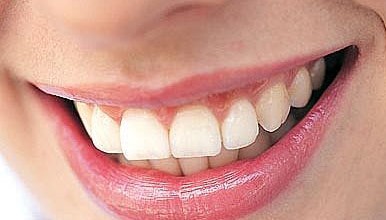 Older adults who get thorough dental cleanings may be somewhat less likely to have a heart attack or stroke than their peers who are less careful about oral hygiene, a new study suggests.The study, of nearly 22,000 Taiwanese adults age 50 and older, found that those who’d had a professional tooth “scaling” in the past year were less likely to suffer a heart attack or stroke over the next seven years.
Older adults who get thorough dental cleanings may be somewhat less likely to have a heart attack or stroke than their peers who are less careful about oral hygiene, a new study suggests.The study, of nearly 22,000 Taiwanese adults age 50 and older, found that those who’d had a professional tooth “scaling” in the past year were less likely to suffer a heart attack or stroke over the next seven years.
Tooth scaling, sometimes called a deep cleaning, involves removing the “plaques” that can build up on the teeth and deep in tooth pockets within the gumline. Those plaques harbor bacteria that can lead to gum disease.
The new findings, reported in the American Journal of Medicine, do not prove that a good dental cleaning will cut your risk of heart problems.
But the study is in line with past research that has linked gum disease to an increased risk of heart disease, said lead researcher Dr. Zu-Yin Chen, a cardiology fellow at Taipei Veterans General Hospital in Taiwan.
Since gum disease is caused by bacterial infection, researchers suspect that it may contribute to heart attacks or stroke by causing a chronic state of inflammation in blood vessels.
And studies have shown that treating gum disease can cut the levels of inflammatory substances in the blood, Chen told Reuters Health in an email.
Still, no one knows for sure whether a regular visit to your dentist can prevent a future heart attack.
For the study, Chen’s team looked at insurance records for 21,876 adults age 50 and older. Taiwan’s national healthcare program pays for tooth scaling, whether a person has severe gum disease or not.
About half of the people in the study had had a tooth scaling in the past year, while the rest had not.
Over the next seven years, 1.6 percent of the tooth-scaling group suffered a heart attack and 8.9 percent had a stroke.
In the comparison group, 2.2 percent had a heart attack and 10 percent had a stroke.
The researchers then weighed some other factors, like whether people had chronic health conditions such as diabetes, high blood pressure or kidney disease. It turned out that a deep tooth cleaning was linked to a 31 percent reduction in the risk of a future heart attack, and a 15 percent dip in the odds of a stroke.
People who got deep cleanings more than once every two years during the follow-up period had even lower risks of cardiovascular “events.”
But the study also had a number of limitations. An important one, Chen said, was that the researchers had no information on people’s smoking habits, weight, diet habits or family history — all prime factors influencing the risks of heart attack and stroke.
It’s also impossible for the study to determine whether people who get regular dental cleanings might also have a healthier lifestyle in other ways.
For now, the researchers recommended taking care of your oral health for the sake of your oral health — with the possibility of benefiting your heart health as well.
“Bad dental hygiene is detrimental to our health, so it’s very important to take care of your teeth,” said Chen, who presented some of his team’s results last November at the American Heart Association meeting.

